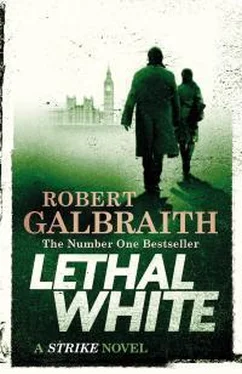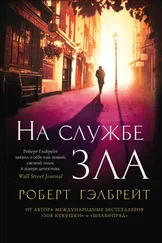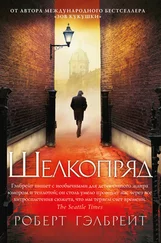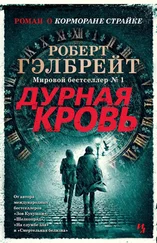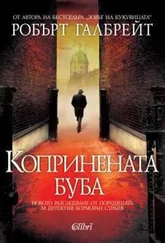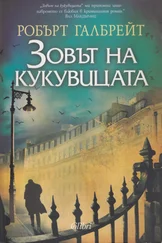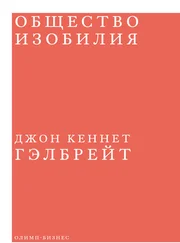‘No,’ she said, pushing him away. ‘I don’t want to.’
He released her at once, as she had known he would, with an expression compounded of anger and triumph. Suddenly, she knew that she had not fooled him when they had had sex on their anniversary weekend, and paradoxically that made her feel tender towards him.
‘I’m sorry,’ she said. ‘I’m tired.’
‘Yeah,’ said Matthew. ‘So am I.’
And he had walked out of the room, leaving Robin with a chill down her back where the green dress had torn.
Where the hell was Strike? It was five past nine and she wanted company. She also wanted to know what had happened after he left the reception with Charlotte. Anything would be preferable to sitting here, thinking about Matthew.
As though the thought had summoned him, her phone rang.
‘Sorry,’ he said, before she could speak. ‘Suspicious package at bloody Green Park. I’ve been stuck on the Tube for twenty minutes and I’ve only just got reception. I’ll be there as quick as I can, but you might have to start without me.’
‘Oh, God,’ said Robin, closing her tired eyes.
‘Sorry,’ Strike repeated, ‘I’m on my way. Got something to tell you, actually. Funny thing happened last night – oh, hang on, we’re moving. See you shortly.’
He hung up, leaving Robin with the prospect of having to deal alone with the first effusions of Jasper Chiswell’s anger, and still grappling formless feelings of dread and misery that swirled around a dark, graceful woman who was sixteen years’ worth of knowledge and memories ahead of her when it came to Cormoran Strike, which, Robin told herself, shouldn’t matter, for God’s sake, haven’t you got enough problems without worrying about Strike’s love life, it’s nothing whatsoever to do with you . . .
She felt a sudden guilty prickle around her lips, where Strike’s missed kiss had landed outside the hospital. As though she could wash it away, she downed the dregs of her coffee, got up and left the café for the broad, straight street, which comprised two symmetrical lines of identical nineteenth-century houses.
She walked briskly, not because she was in any hurry to bear the brunt of Chiswell’s anger and disappointment, but because activity helped dispel her uncomfortable thoughts.
Arriving outside Chiswell’s house precisely on time, she lingered for a few hopeful seconds beside the glossy black front door, just in case Strike were to appear at the last moment. He didn’t. Robin therefore steadied herself, walked up the three clean white steps from the pavement and knocked on the front door, which was on the latch and opened a few inches. A man’s muffled voice shouted something that might have been ‘come in’.
Robin passed into a small, dingy hall dominated by vertiginous stairs. The olive-green wallpaper was drab and peeling in places. Leaving the front door as she had found it, she called out:
‘Minister?’
He didn’t answer. Robin knocked gently on the door to the right, and opened it.
Time froze. The scene seemed to fold in upon her, crashing through her retinas into a mind unprepared for it, and shock kept her standing in the doorway, her hand still on the handle and her mouth slightly open, trying to comprehend what she was seeing.
A man was sitting in a Queen Anne chair, his legs splayed, his arms dangling, and he seemed to have a shiny grey turnip for a head, in which a carved mouth gaped, but no eyes.
Then Robin’s struggling comprehension grasped the fact that it was not a turnip, but a human head shrink-wrapped in a clear plastic bag, into which a tube ran from a large canister. The man looked as though he had suffocated. His left foot lay sideways on the rug, revealing a small hole in the sole, his thick fingers dangled, almost touching the carpet, and there was a stain at his groin where his bladder had emptied.
And next she understood that it was Chiswell himself who sat in the chair, and that his thick mass of grey hair was pressed flat against his face in the vacuum created by the bag, and that the gaping mouth had sucked the plastic into itself, which was why it gaped so darkly.
35
… the White Horse! In broad daylight!
Henrik Ibsen, Rosmersholm
Somewhere in the distance, outside the house, a man shouted. He sounded like a workman, and in some part of her brain Robin knew that that was who she had heard when she was expecting to hear ‘come in’. Nobody had invited her into the house. The door had simply been left ajar.
Now, when it might have been expected, she didn’t panic. There was no threat here, however horrifying the sight of that awful dummy, with the turnip head and the tube, this poor lifeless figure could not hurt her. Knowing that she must check that life was extinct, Robin approached Chiswell and gently touched his shoulder. It was easier, not being able to see his eyes, because of the coarse hair that obscured them like a horse’s forelock. The flesh felt hard beneath his striped shirt and cooler than she had expected.
But then she imagined the gaping mouth speaking, and took several quick steps backwards, until her foot landed with a crunch on something hard on the carpet and she slipped. She had cracked a pale blue plastic tube of pills lying on the carpet. She recognised them as the sort of homeopathic tablets sold in her local chemist.
Taking out her mobile, she called 999 and asked for the police. After explaining that she had found a body and giving the address, she was told that someone would be with her shortly.
Trying not to focus on Chiswell, she took in the frayed curtains, which were of an indeterminate dun colour, trimmed with sad little bobbles, the antiquated TV in its faux wood cladding, the patch of darker wallpaper over the mantelpiece where a painting had once hung, and the silver-framed photographs. But the shrink-wrapped head, the rubber piping and the cold glint of the canister seemed to turn all of this everyday normality into pasteboard. The nightmare alone was real.
So Robin turned her mobile onto its camera function and began to take photographs. Putting a lens between herself and the scene mitigated the horror. Slowly and methodically, she documented the scene.
A glass sat on the coffee table in front of the body, with a few millimetres of what looked like orange juice in it. Scattered books and papers lay beside it. There was a piece of thick cream writing paper headed with a red Tudor rose, like a drop of blood, and the printed address of the house in which Robin stood. Somebody had written in a rounded, girlish hand.
Tonight was the final straw. How stupid do you think
I am, putting that girl in your office r ight under
my nose? I hope you realise how ridiculous you look,
how much people are laughing at you, chasing a
girl who’s younger than your daughters.
I’ve had enough. Make a fool of yoursel f, I don’t
care any more, it’s over.
I’ve gone back to Woolstone. Once I’ve made
arrangements for the horses, I’ll clear out for good.
Your bloody horrible children will be happy, but will
you, Jasper? I doubt it, but it’s too late.
K
As Robin bent to take a picture of the note, she heard the front door snap shut, and with a gasp, she spun around. Strike was standing on the threshold, large, unshaven, still in the suit he had worn to the reception. He was staring at the figure in the chair.
‘The police are on their way,’ said Robin. ‘I just called them.’
Strike moved carefully into the room.
Читать дальше
